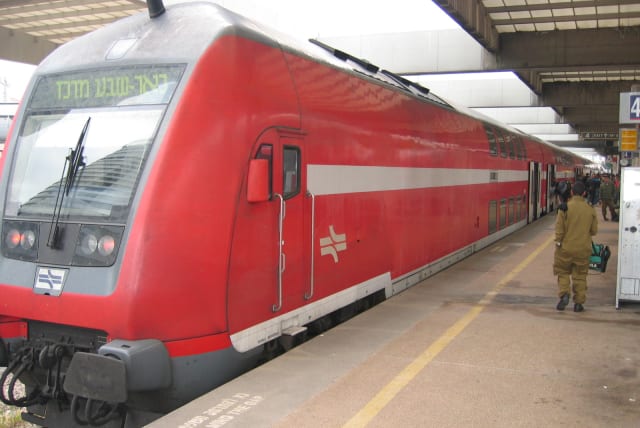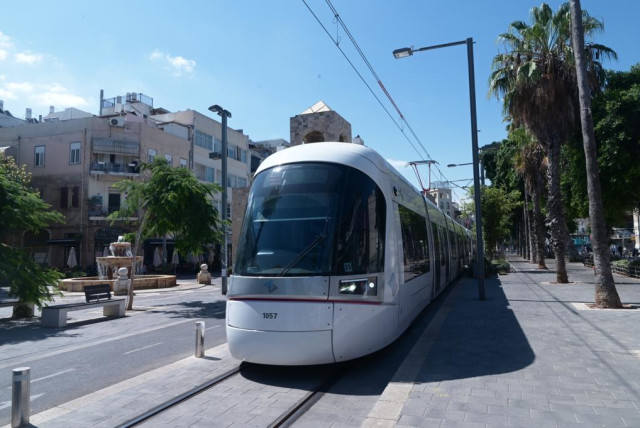Israel must find a Shabbat compromise on public transport - editorial

Every town and city in the country, whether in the periphery or Center, ought to have reasonable public transportation.
Public transportation on Saturdays has long been a political bugbear in Israel, but this government has turned transport more broadly into a Right vs. Left issue.
Transportation Minister Miri Regev rolled back some of the policies her predecessor Merav Michaeli had put in place, calling to scrap the Metro project that would build a subway network in the Tel Aviv region to prioritize Israel’s periphery – where, perhaps coincidentally, many of her Likud Party’s voters live.
Upon entering the ministry in January, Regev said she is advancing “distributive justice” and “righting a historic wrong by approving the budget for the eastern railway line and lines in the north of the country.”
Every town and city in the country, whether in the periphery or Center, ought to have reasonable public transportation. That is a basic right of all Israelis and it should not be a question of either-or.
But the Dan region is where 50% of the jobs are located. There is massive traffic in and around Tel Aviv on the weekdays, and while the light rail that will soon be ready for riders may provide some relief, it is projected to be massively overcrowded.
A metro system in the Tel Aviv area makes sense, making life easier not only for local residents but also for those who live in the periphery and work in the Center, who would save time and money with the ability to take public transportation rather than sit in traffic in their private vehicles.
Last week, the Transportation Ministry made yet another decision that has a clear political logic but makes little sense for Israelis’ transportation needs.
The Tel Aviv light rail will not operate on Shabbat and holidays, Regev’s ministry announced. Current coalition partners United Torah Judaism and Shas have made their strong opposition to public transportation on Shabbat clear over decades. When serving as transportation minister, Finance Minister Bezalel Smotrich canceled bus lines that ran on Shabbat.
The light rail’s Red Line runs through Bnei Brak, the densely-populated haredi city, which has been cited as a primary reason the line will be shut down on Shabbat.
Transport compromises are possible
However, this need not be the case. Even the vaunted New York City subway, one of the busiest urban transportation networks in the world, does not always go to every stop at all times; sometimes lines have different weekend or late-night schedules (though for reasons having nothing to do with religion).
The Tel Aviv light rail can stop before reaching Bnei Brak. While it is true that this would cut off Petah Tikva, which is the next and final locality on the line, that city has a large religious-Zionist and ultra-Orthodox population, so the impact on residents would be more limited.
There is, of course, an argument to be made about Israel’s Jewish character and Shabbat as the day of rest.
But in a free country, people may choose to make Shabbat special in their own way. Some may light candles, eat a family dinner, and walk to synagogue. Others may drive a car or take public transit to do those things, and many may choose not to do them at all.
Tel Avivians and residents of neighboring cities tend to be secular. While the city has a distinct Shabbat feeling, in which things slow down significantly, there are still plenty of revelers at the bars on Friday nights and the beaches are crowded on Saturday mornings.
These people are not observing Shabbat in a traditional sense, regardless of the light rail. Those who don’t have their own cars take buses run by their cities or taxis. And those who can’t afford these more expensive options are stuck at home, unable to enjoy the short Israeli weekend as they wish.
Depriving these people of public transportation has obviously not convinced them to become more religious – in fact, religiously motivated laws make many nonobservant Israelis more hostile to Judaism and to those who observe it traditionally, deepening divides in Israeli society at a time when unity is so sorely needed.
A compromise can and must be found, so all Israelis can celebrate Shabbat as they see fit.
Jerusalem Post Store
`; document.getElementById("linkPremium").innerHTML = cont; var divWithLink = document.getElementById("premium-link"); if (divWithLink !== null && divWithLink !== 'undefined') { divWithLink.style.border = "solid 1px #cb0f3e"; divWithLink.style.textAlign = "center"; divWithLink.style.marginBottom = "15px"; divWithLink.style.marginTop = "15px"; divWithLink.style.width = "100%"; divWithLink.style.backgroundColor = "#122952"; divWithLink.style.color = "#ffffff"; divWithLink.style.lineHeight = "1.5"; } } (function (v, i) { });

